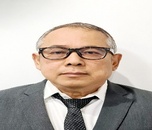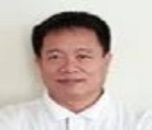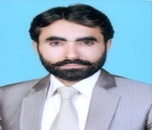5506
Scientific Program
Keynote Session:
Oral Session 1:
- Recycling Webinar
Title: Ecological Solid Waste Management Act of 2000
Biography:
Geronimo Antonio B. Singson is a Vice-President Of The Philippine Institute Of Environmental Planners
Abstract:
RA 9003 describes solid waste management as a discipline associated with the control of generation, storage, collection, transfer and transport, processing, and disposal of solid wastes. The manner by which these activities are conducted shall be in accord with the best principles of public health, economics, engineering, conservation, aesthetics, other environmental considerations, and public attitudes. The Act provides for a comprehensive ecological solid waste management program by creating the necessary institutional mechanisms and incentives, appropriating funds, declaring certain acts prohibited, and providing penalties.
Title: Clean Technologies for Sustainable Development
Biography:
Veljko Radicevic, is completed PhD and noe he is working in Academy of Technical and Art Applied Studies Belgrade, Serbia.
Abstract:
The enlarged use of automobiles has multiplied certain side effects, such as congestion, growing number of casualties in traffic accidents, noise, air pollution, rapid warming and destruction of the ozone layer. These factors directly or indirectly affect the quality of life of the inhabitants of large cities. It is clear that the pollution problems may be reduced by the use of “cleaner“ technologies in the operation of motor vehicles. The other problems are associated with the increasing use of motor vehicles, and cannot be solved in this way. They are related to the impact on health (injuries in traffic accidents and decreasing physical activity), economy (severe traffic congestion and extended travel time), environment (occupation of green spaces, noise), and society (alienation and space reduction). Modern approaches in solving the above mentioned issues can be found in the principles of sustainable development. The reduction of the use of motor vehicles is realized by taking “soft measures“, such as: making use of various forms of communication, advertizing and education aiming at altered attitude and behaviour in local community.
Title: Assessment of Solid Waste Generation and Management at the Local Level
Biography:
George R. Puno is a faculty of the College of Forestry and Environmental Science, Central Mindanao University, Philippines. He is a concurrent, Head, Planning Unit of the Geomatics Center for Research and Extension in Mindanao (GeoMin), CMU. He obtained his Doctor of Philosophy in Forestry at the University of the Philippines Los Baños. His field of specialization includes among others Geographic Information System (GIS), watershed management, and modeling and disaster management. He serves as Project Leader in several research projects such as the Flood Hazard Mapping using Light Detection and Ranging (Phil-LiDAR 1) for Northern Mindanao and the GeoSafer Mindanao or the Geo-Informatics for the Systematic Assessment of Flood Effects and Risks for a Resilient Mindanao. He has published peer-reviewed scientific articles, both national and international
Abstract:
Statement of the Problem: Solid waste generation has been a pressing concern to environmental and health issues of the present time. It accumulates at a rate that exceeds the natural environment absorption capacity and the treatment available both at the national and local level. The ever increasing varieties and quantities of solid wastes generated for years remains a problem. Solid waste management in the Philippines at the local level scenario seems to be the less priority rendered services due to lack of scientific protocols and outdated facility system. While the national government mandates the local authorities to implement sanitary landfills through Republic Act 9003, the compliance as legally prescribed with the minimum standards remains low as seen in most landfills. The purpose of this paper is to assess the status of the solid waste generation rate and management strategies of the country at the local scenario. Methodology & Theoretical Orientation: The main approach included qualitative case-study of local solid waste management that allows inductive self-administered questionnaire and ocular observation. Secondary data was extracted from the local solid waste management 10-year management plan. Two questionnaires were designed namely self-constructed and validated adapted from the World Health Organization-Guides for Municipal Solid Waste Management in Pacific Countries. Findings: The major contributor of the waste generation in the locality are industrial, commercial, and institutional establishments with 85% biodegradable. Based on waste generated of 0.29 kg/capita and an annual population increase of 2.48%, the waste generation rate was projected to increase by roughly 27% in 2024. Conclusion & Significance: The solid waste disposal strategy of the locality has to follow a science-based protocol through appropriate sanitary landfill management to address environmental and health issues and concerns. Fortunately, the locality is on the right track in its solid waste management system provided that it ensures the implementation of its approved solid waste management plan. Waste utilization through appropriate recycling will reduce the waste disposal up to 70-90 %.
Title: PPP framework for municipal solid waste management: Case of Lebanese municipalities
Biography:
Karl Büchner studied materials science and technology focused on nonferrous metallurgy at TU Bergakademie Freiberg and was a research assistant at the Institute of Nonferrous Metallurgy and Purest Materials. There he worked on simulation and model experiments in magnetohydrodynamics. Currently, he works at UrbanGold GmbH in the field of metallurgy process engineering and process development.
Abstract:
Public authorities around the world have been historically responsible for the management of their municipal solid waste. In Lebanon, political conflicts and corruption, weak law enforcement and lack of planning in addition to the influx of over one million Syrian refugees presented barriers to the management of municipal solid waste. The sector have witnessed subsequent crises since the 1990s that were handled through erroneous emergency plans on every occasion leading to catastrophic results in terms of environmental and financial sustainability. Today in 2020, the Lebanese government facing unprecedented challenges on the financial and social levels, have failed to develop its national strategy for SWM knowing that both its coastal landfills have reached their design capacities while an enormous explosion at the port of Beirut on August 4th double these landfills’ inflow waste stream and caused damages to the existing waste treatment facilities. Faced by these challenges, the main aim of this research is to develop a framework for local policy makers at the municipal level to engage in public private partnerships for the management of their municipal solid waste through a performance based remuneration system. These partnerships would help local policy makers to develop their infrastructure despite the existing financial and technical barriers they are facing in their municipalities. The roadmap established in this research for local Lebanese municipalities took existing experiences into consideration along with the guiding reports from the World Bank and the Asian development bank to produce a framework based on four pillars that were implemented on a case study for one of Mount Lebanon union of municipalities. The paper’s analysis yielded an integrated solid waste management plan whose financial analysis over 15 years yielded a positive NPV of 1,261,198 US dollars and an internal rate of return of 24.89% that exceeded the calculated weighted average of capital cost of 18.76% in the case of the base scenario that is based on an annual cash injection from the municipality of 3,800,000 US dollars. A sensitivity analysis was also performed on the key factor’s influencing the project’s viability. Based on the analysis, the project was found to remain financially viable for a maximum exchange rate of 2,530 Lebanese Liras for 1 US dollar, a maximum of 9.9% inflation rate while being less sensitive to user fees collection and revenues from compost sales with the availability of cash injections.
Title: Conversion of putrescible components of municipal solid waste into organic fertilizer by aerobic composting
Biography:
Dr. Korai Muhammad Safar is an “Assistant Professor” of environmental engineering as well as “Quality Coordinator” at the Institute of Environmental Engineering & Management, Mehran University of Engineering & Technology, Jamshoro. Dr. Korai completed his B.E, M.E and Ph.D from Mehran University of Engineering & Technology, Jamshoro in 2006, 2009 and 2018 respectively. Dr. Korai’s main fields of interest are solid waste management, composting technology, anaerobic digestion technology, waste to energy and hazardous waste risk assessment. His research specifically explores how solid waste is to be managed to recover energy from it and to make cities of Pakistan sustainable for citizens of the country. Dr. Korai’s research work regarding to the waste to energy has been published in several reputable international journals having highest impact factor, such as Renewable and Sustainable Energy Reviews, Energy Conversion & Management, Energy, Waste Management, Waste Management & Research, Material Cycle and Waste Management, etc.
Abstract:
Increasing amount of municipal solid waste (MSW) because of overgrowing population and it’s openly dumping practice has created many environmental as well as socio-economic problems in developing countries. The putrescible components of MSW such as fruit, vegetable and yard wastes are major components of MSW and mostly higher in quantity than rest of components. The conversion of these components into organic fertilizer have many advantages like soil fertility enhancement, reduction of chemical fertilizer and reduction of greenhouse gases emissions during burning of putrescible components along with other components of MSW. This study was performed for conversion of putrescible components into organic fertilizer. Three composting reactors were designed and locally fabricated and operated at different operating conditions. During operation of composting reactors various operating parameters such as moisture content, pH, temperature, organic contents, and inorganic contents were measured and monitored.  From comparison of results of all reactors, it has been revealed that static natural air reactor for conversion of putrescible components of MSW into organic fertilizer would be best option as compared to other reactors. The results and finding of study lead to recommend that aerobically conversion of putrescible components of MSW into organic fertilizer may be enhanced at the source of waste generation.
Title: The Effect of Catalyst Calcination Temperature on Catalytic Decomposition of Waste HFC-134a over γ-Al2O3
Biography:
Mahshab Sheraz department of Environmental Sciences and Biotechnology, Hallym University, Chuncheon, Republic of Korea.
Abstract:
This research contains the decomposition techniques for waste 1,1,1,2-tetrafluoromethane (HFC-134a). HFC-134a is a potent synthetic GHG with a GWP of 1300. The rise in demand for air conditioners has caused a steep increase in the atmospheric concentration of HFC-134a. This research explores the thermal and catalytic pyrolysis of waste HFC-134a over γ-Al2O3 calcined at temperatures of 550 °C (A550), 650 °C (A650), 750 °C (A750), and 850 °C (A850). The physicochemical properties of catalysts were studied through thermogravimetric analysis (TGA), Brunauer–Emmett–Teller equation for nitrogen physisorption analysis (BET), X-ray diffraction (XRD), and temperature-programmed desorption of ammonia (NH3-TPD). The non-catalytic pyrolysis of HFC-134a showed less than 15% decomposition of HFC-134a. Catalysts increased the decomposition as A650 revealed the highest decomposition efficiency by decomposing more than 95% HFC-134a for 8 h followed by A750, A850, and A550. The larger surface area and pore volume paired with a low amount of strong acidic sites were considered as the main contributors to the comparatively longer catalytic activity of A650.







